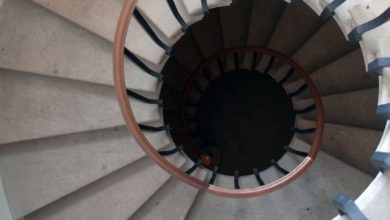The single biggest mistake you can make as a pre-med is falling victim to the “perfect pre-med checklist.” Instead, tune out the noise and choose experiences that speak to you.
While there are plenty of possible mistakes you can make as a pre-med, avoiding this one in particular will spare you from having an unsteady foundation in your medical school application. So, what is the mistake?
Falling Victim to the “Perfect Pre-med Checklist”
We’ve all heard it, and most of us have seriously considered following it. There is no physical list, but if there were, it would contain some of the following:
- Have hundreds of volunteer hours in a hospital
- Have lots of research experience
- Earn a 4.0 GPA
- Be the president of several clubs
Sounds a little too good to be true, right? Those qualities are definitely impressive, but they are not the end all be all of perfect applications. In addition, those achievements are incredibly hard to get all at the same time! How can you spend so much time doing research, volunteering, and joining clubs, while also having enough time to study and earn a 4.0 GPA?! I’m not saying it hasn’t been done, but it is certainly a more challenging path to pursue. Just because you get those things doesn’t mean you’re a shoe-in for medical school.
What I have come to learn is that approaching the pre-med years with a checklist in mind is a great way to end up with a pretty CV, but nothing to speak about passionately in an interview.
Deviating From the Perfect Pre-Med Checklist Was the Best Decision I Made in College
I was once torn between two research positions. Both were clinical research roles, but one was directly in the hospital and looked a bit better on paper at first glance, while the other was less well known and the position responsibilities were a bit vague. However, the less flashy position involved working with a patient population I love and doing work that actively improved the lives of patients. Meanwhile, the flashier position involved work that largely benefited large research organizations rather than individual patients.
Had I gone with the flashier position, I probably would have had a nice time and gained some valuable experience. Instead, I went with the less flashy one, and that job became the centerpoint of my college experience and my medical school application. The vagueness of the position’s responsibilities meant that I was able to choose the projects I was most interested in, and even create some of my own!
Looking back, the single best decision I made in college was choosing the pre-med job that didn’t fit the “perfect pre-med” checklist ideals. What may have seemed imperfect to others was just the right fit for me.
Tune Out the Noise & Choose Experiences That Speak to You
While it is good to have a stand-out application on paper, that paper isn’t the thing caring for patients years from now, you are. So as you navigate your path and make decisions about how to spend your time, do your best to tune out the noise. There will be many who tell you “this would look good on your application/resume” or “that won’t benefit you at all, do this instead.” When those times come, remember that an incredible lived experience that you love to talk about can be more important that an impressive achievement that you barely enjoyed working toward.
If you need help preparing to apply to medical school, the admissions advisors over at MedSchoolCoach have helped thousands of students achieve their dreams. Schedule a free consultation and see if their application advising services are right for you.



